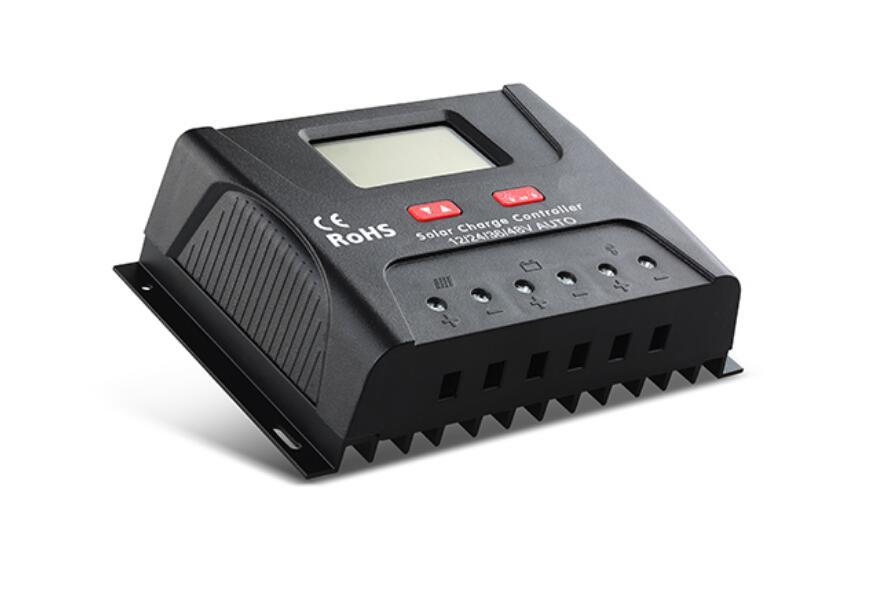-
Business enquiry telephone
-
Business enquiry telephone
-
About UsBusiness enquiry telephone
-
Business enquiry telephone
27
2025
-
06
How to Achieve Intelligent Control of Household Inverters
Author:
With the popularization of photovoltaic (PV) power generation, the intelligent control of household inverters—key devices connecting PV modules and the power grid—has gradually become a crucial development direction. The intelligent control of household inverters aims to enhance system performance, improve user experience, and strengthen the flexibility and efficiency of energy management.
The intelligent control of household inverters typically relies on advanced digital technologies and control algorithms. Intelligent control systems can monitor the output of PV modules and changes in household power loads in real time. This is achieved through the installation of sensors and monitoring devices, which record and analyze power generation data and electricity consumption patterns to make corresponding adjustments. Such data analysis provides the foundation for inverter control, ensuring the inverter can operate optimally under various environmental conditions.

Modern inverters are usually equipped with intelligent algorithms that enable self-learning and automatic optimization. Through technologies like machine learning, inverters can identify peak and off-peak power consumption periods, adjusting power generation and consumption at appropriate times to maximize the utilization of solar energy. This intelligent regulation mechanism not only improves energy efficiency but also reduces electricity costs.
The intelligent control of household inverters also includes remote monitoring and management. This function allows users to view real-time power generation and consumption trends through mobile apps or computer terminals. In the event of faults or abnormal operations, users can receive notifications immediately to troubleshoot issues. The convenience of remote management significantly enhances the user experience and reduces reliance on professional maintenance personnel.
Intelligent control is also reflected in the integration of household inverters with smart home systems. By integrating various smart devices, such as smart meters, households can achieve more refined energy management. For example, when the power consumption of home appliances reaches a set value, the inverter can intelligently adjust the power generation capacity or even automatically switch to battery power to ensure stable system operation and meet user power demands as much as possible.
Facing the needs of different users, intelligent household inverters can also achieve personalized settings. For instance, users can independently select power generation modes and set different working parameters based on their power consumption habits and power generation capacity. This flexibility enables users to maximize the advantages of solar power generation according to their needs.
Household inverters achieve intelligent control through multiple methods, including real-time monitoring, intelligent algorithms, remote management, and system integration. This control mode not only optimizes the efficiency of PV power generation but also enhances user experience, providing more possibilities for home energy management. In the future, with the continuous advancement of technology, the intelligent control of household inverters will become more sophisticated, bringing more convenient and efficient energy solutions to users.
Key words:
Related news
Related news
Contact Us
+86 18182694116
Room 632, Block C, China Merchants Silk Road Center, Gangxing 3rd Road, Xinzhu Street, Xi 'an City
COOKIES
Our website uses cookies and similar technologies to personalize the advertising shown to you and to help you get the best experience on our website. For more information, see our Privacy & Cookie Policy
COOKIES
Our website uses cookies and similar technologies to personalize the advertising shown to you and to help you get the best experience on our website. For more information, see our Privacy & Cookie Policy
These cookies are necessary for basic functions such as payment. Standard cookies cannot be turned off and do not store any of your information.
These cookies collect information, such as how many people are using our site or which pages are popular, to help us improve the customer experience. Turning these cookies off will mean we can't collect information to improve your experience.
These cookies enable the website to provide enhanced functionality and personalization. They may be set by us or by third-party providers whose services we have added to our pages. If you do not allow these cookies, some or all of these services may not function properly.
These cookies help us understand what you are interested in so that we can show you relevant advertising on other websites. Turning these cookies off will mean we are unable to show you any personalized advertising.

